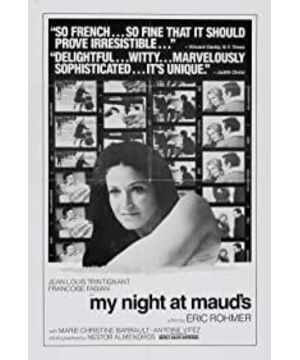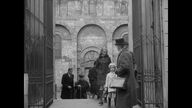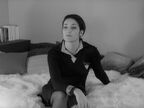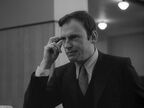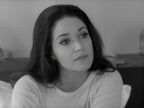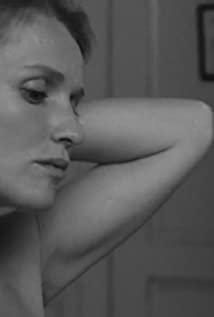The shooting, lighting, and casting are all top notch. It's a super-level performance... swept away the habit of "manual school". Admittedly, this is mainly due to the particularity of the religious component in its theme - Catholicism - in the world of cinema. Through religious stereotypes, the village priest repeatedly "tortured" his own body, and the hero was also "tortured" himself. Of course, Catholicism does not function as vulgar asceticism. Instead, under the lens of the film, thinking - especially thinking about something, is presented in its entirety.
If you pay a little attention, you will find that this moment of enlightenment in the movie often exists in the freeze frame or the stillness of the camera. For example, the scene where the male protagonist is lying on the sofa of the Mude house, or the young country priest drinking wine at the table, or the sitting position of Guinevere and Lancelot when talking, etc., are relatively fixed on the screen. . But the movements of the actors (models); their breathing; their gazes...that is to say, the image, continues to develop and change. This is the schema of thinking. An image that expresses a vivid impression.
So what is the role of Catholicism? It is the setting of the perspective that foreshadows the above-mentioned schema of thinking - just like a person moving in the middle ground, the close scene is some symbolic setting that evokes associations, and the background is a slightly blurred background of the environment. That is to say, Catholicism is nothing more than thinking about the context of the pictorial environment. It involves culture on the one hand, and rationality of thinking on the other – a more complex issue. That is, it is necessary to think about whether the thinking itself is reasonable. Here, the hero gives space to think about the rationality of thinking by talking to others. For thinking, morals and principles, it should also be considered whether it is correct or not, which is the deep theme of the film. Therefore, Rohmer is doing the addition, and he has to further promote the progress of this core issue through the in-depth development of the conversation and the relationship between the characters.
Therefore, it can be seen that the best scenes in this film are all concentrated indoors, which is inevitable. The continuous fermentation of the film's theme depends on the intricacies of the characters' relationships - which the stage plays are good at handling - or, conversely, the way the theme must be invoked in order to develop the theme.
However, in contrast to the beautiful indoor stage play, the film's "documentary" style of shooting on location is daunting.
So what happens outside is coincidence and the relationships of characters governed by the laws of chance. That is true. But, within the horizon of Rohmer's film, chance is only secondary, a kind of probing and counter-direction to the main principle; it only serves as reinforcement. Therefore, these accidental coincidences must be subject to "Catholic" thinking - moral code - Rohmer makes thinking about thinking more complicated, that is, the subjectivization of thinking - the formation of moral code. The so-called principle of life of the protagonist is finally rewarded here (this is again a ritual schema in the religious sense).
In general, Rohmer's films have always continued this "characteristic", excluding similar stories (narrative situations) and similar filming techniques, he always tends to add a self-limitation to emotion-thinking. It's not about "morality", but about its specific "situation".
View more about My Night at Maud's reviews


